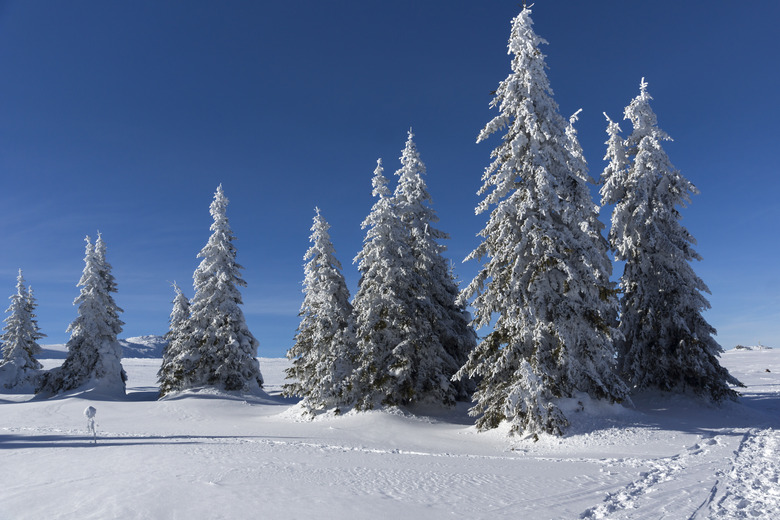What Are The Six Types Of Air Masses?
An air mass is a very large body of air that has a similar temperature and humidity in any horizontal direction. It can cover hundreds of thousands of square miles. According to the Bergeron Climatic Classification System, air masses form when a surface source region (continental or maritime) combines with a latitude source region (tropical, polar, arctic or Antarctic).
Air masses are defined by the surface they're over along with characteristics that they take on from those surfaces (moisture, temperature, heat, etc). Each of the air mass types produce different weather and can affect the earth's climate for days or months.
Air Mass Definition
Air Mass Definition
An air mass is a body of air that extends horizontally; within that horizontal body of air, temperature and humidity re the same/similar. These masses of air form when air is stagnant (aka sits still) over a certain uniform area for a long period of time.
It takes on temperature and moisture based on what area of the surface of the earth the mass is positioned over. They're then able to be classified based on the location of the mass, what kind of land/water/surface it's positioned over and the characteristics it takes on from those locations (temperature, heat, moisture, etc).
Read more about air mass influences climate.
Continental Polar
Continental Polar
The continental polar air mass forms over a large, subpolar land area. It is cold and stable and has low humidity. This type of air mass creates very cold winter weather without precipitation or clouds. It is often responsible for lengthy cold spells that result in crop damage as far south as Florida. During the summer, this type of air mass can bring cooling relief to the northern United States with its cold air and winds.
Read more about how air mass influences weather of the pacific coast.
Continental Arctic
Continental Arctic
The continental Arctic air mass develops only in the winter over large areas of snow and ice. It is extremely cold and dry due to frigid conditions near the polar circle, caused in part by polar nights, which are periods of 24-hour darkness. This air mass can produce record-breaking cold temperatures in Canada and the United States.
Continental Antarctic
Continental Antarctic
As the name suggests, the continental Antarctic air mass forms solely over Antarctica. It is stable, extremely cold and extremely dry. It has colder temperatures than any other air mass during any season. Travel over the ocean modifies this air mass. By the time it reaches land in the Southern Hemisphere, it usually changes classification to maritime polar as it is no longer over the antarctic source surface area.
Continental Tropical
Continental Tropical
Continental tropical air is produced over the world's deserts, including the Sahara, Arabian and Australian deserts. The southwestern desert in the U.S. is also a source of this type of air mass during the summer. The air mass is hot and has extremely low humidity. It affects summer weather and is capable of causing drought if it lingers over a region. Heat waves that result in human and animal deaths can be caused by this air mass.
Maritime Polar
Maritime Polar
The maritime polar air mass forms over cold, polar oceans. It is cool and moist and can create mild weather in coastal areas depending on the time of year. In the winter, it produces warmer weather when the surface temperature of the ocean is higher than the land temperature. In the summer, it brings cooler weather when the ocean is colder than the continent.
Maritime Tropical
Maritime Tropical
The principal type of maritime air is maritime tropical. This very warm and humid air mass develops over tropical and subtropical seas and oceans. It creates rainy conditions east of the Rocky Mountains in the winter, particularly in the southeastern United States.
References
Cite This Article
MLA
Orlowski, Cindy. "What Are The Six Types Of Air Masses?" sciencing.com, https://www.sciencing.com/six-types-air-masses-8045253/. 22 November 2019.
APA
Orlowski, Cindy. (2019, November 22). What Are The Six Types Of Air Masses?. sciencing.com. Retrieved from https://www.sciencing.com/six-types-air-masses-8045253/
Chicago
Orlowski, Cindy. What Are The Six Types Of Air Masses? last modified March 24, 2022. https://www.sciencing.com/six-types-air-masses-8045253/
